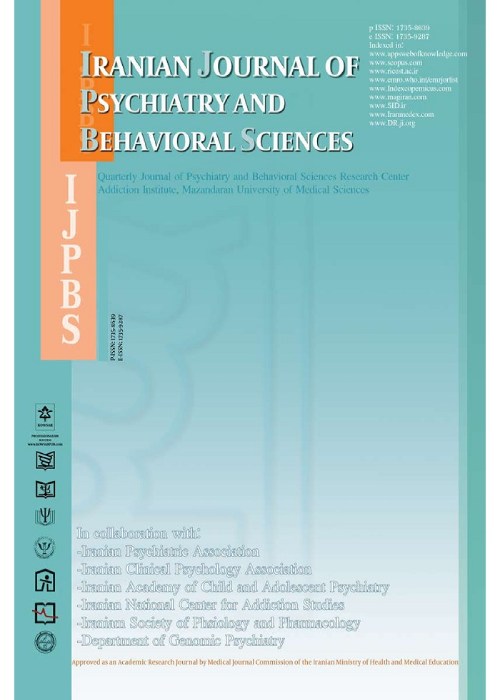Mediating Role of Self-esteem and Self-efficacy in the Relationship of Perfectionism and Negative Reactivity with Eating Disorders
Eating disorders (EDs) are prevalent in adolescents and young adults, leading to various psychiatric and physical complications that affect the quality of life and even mortality.
The present study aimed to investigate the mediating role of self-efficacy and self-esteem in the relationship of perfectionism and negative reactivity with EDs.
This descriptive study was performed on 302 students selected from the University of Tehran during 2018 - 2019. The data collection tools were the ED Examination-Questionnaire Short form, Self-esteem Scale, Weight Efficacy Lifestyle Questionnaire-Short Form, ED Inventory-Perfectionism Scale, and Perth Emotional Reactivity Scale. Pearson’s correlation coefficient and structural equation modeling were used to analyze the data.
The results showed that EDs had significant positive correlations with perfectionism (r = 0.4, P = 0.01) and general negative reactivity (r = 0.53, P = 0.01). On the other hand, these disorders had a significant negative correlation with self-esteem (r = -0.48, P = 0.01) and self-efficacy (r = 0.53, P=0.01). Self-esteem had a negative significant relationship with perfectionism (r = -0.12, P = 0.05) and negative reactivity (r = -0.68, P = 0.01). Moreover, self-efficacy had a negative significant relationship with perfectionism (r = -0.28, P = 0.01) and negative reactivity (r = -0.5, P = 0.01). The findings of path analysis showed that self-esteem and self-efficacy played mediating roles in the relationship of negative reactivity and perfectionism with EDs. Negative reactivity directly affected eating pathology (t = 1.27, ß = 0.13) but is not significant.
Our findings showed that self-esteem and self-efficacy are protective factors against the negative effects of perfectionism and negative reactivity. Therefore, self-esteem and self-efficacy can be considered as parts of prevention and treatment programs for EDs.
- حق عضویت دریافتی صرف حمایت از نشریات عضو و نگهداری، تکمیل و توسعه مگیران میشود.
- پرداخت حق اشتراک و دانلود مقالات اجازه بازنشر آن در سایر رسانههای چاپی و دیجیتال را به کاربر نمیدهد.


